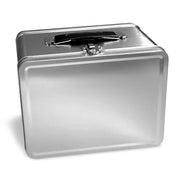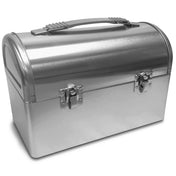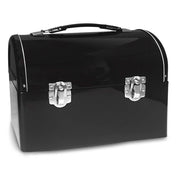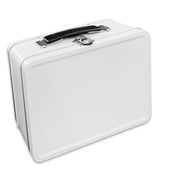It seems like just about every week a new food or ingredient hits the market, claiming to help you shed extra pounds, kick up energy levels, and boost immune health. In fact, food companies started targeting health-conscious consumers decades ago with “healthy” products that are actually bursting with additives, chemicals, and questionable ingredients. Despite being marketed as healthy and nutritious, many of these products can have negative effects on your health.
So which foods should you limit in your diet? Here are a few foods that may not be as healthy as we’re led to believe, plus a few better options that you can swap in instead.
1. Farm Raised Fish
Fish is well-known for its health-promoting properties. Packed with heart-healthy fats and essential micronutrients, fish can be an excellent addition to the diet. In fact, the American Heart Association recommends eating at least two servings of fatty fish every week to optimize your health.
But while wild-caught fish can provide numerous health benefits, you should steer clear of farm-raised fish altogether. For example, farm-raised salmon, which is often marketed under the name “Atlantic salmon.” Farm-raised salmon has actually been shown to be higher in pollutants and toxins. Consuming farmed fish on a regular basis can contribute to serious health problems like insulin resistance and obesity.
Stick to healthier types of fish to get in your daily dose of omega-3 fatty acids and micronutrients. Alaskan wild-caught salmon, Atlantic mackerel, or Pacific sardines are all nutritious and delicious alternatives to farm-raised fish.
2. Store Bought Granola
Although it’s often considered a healthier breakfast option than sugary donuts or pancakes drowning in syrup, a lot of granola has enough sugar and empty calories that it should actually be considered a dessert. Filling up on large amounts of sugar – especially first thing in the morning – can have detrimental effects on health, with studies showing that a high sugar intake may be linked to a higher risk of cancer, diabetes, and obesity.
As an alternative to store-bought granola that may have anywhere from 8-12 grams of sugar per serving, try making your own granola (or granola bars!) at home using nutritious ingredients such as oats, nuts, seeds, and dried fruit for natural sweetness. You can also try using other healthy ingredients like chia seeds or hemp seeds to add a tasty crunch to your bowl of yogurt or oatmeal in place of granola.
3. Processed Juices
Despite once being considered a staple of a healthy diet, you may want to reconsider what kind of juice you’re adding to your grocery list. Store-bought green smoothies, for example, are often pumped full of extra ingredients that diminish any potential health benefits. Processed fruit juice, on the other hand, contains a concentrated megadose of all the sugar found in fruit, but with none of the beneficial fiber that you get from the whole fruits. This is important because fiber helps slow down the absorption of sugar in the bloodstream to prevent sudden spikes and crashes in blood sugar, while also helps reduce the risk of conditions like heart disease, diabetes, obesity, and high blood pressure.
Whole fruits like oranges, apples, and grapes are much better alternatives to sugary fruit drinks. Not only do they provide tons of important vitamins and minerals, but they are also rich in fiber to help keep blood sugar steady and promote better health.
You can also try making your own natural juice at home with your favorite fruits and vegetables for a healthy alternative to processed juices from the store.
4. Diet Snacks
Snack foods like veggie chips or pretzels are often marketed as healthy alternatives to high-fat products like potato chips. However, many of these foods are actually deep-fried, while also being high in sodium, fat, refined carbs, and other artificial added ingredients that you’re better off without.
Instead of buying bagged snacks at the store, try baking your own veggie chips at home using kale, carrots, zucchini, or radishes. Other healthy snack alternatives to satisfy your cravings include air-popped popcorn, roasted chickpeas, or toasted pumpkin seeds.
5. Artificial Sweeteners
Often lurking in foods marketed as “healthy,” artificial sweeteners are anything but. Studies suggest that artificial sweeteners like aspartame, sucralose, and saccharin may actually increase appetite and cravings, contribute to weight gain, and even disrupt gut health.
Keep your intake of "diet" foods with artificial sweeteners to a minimum and try sweetening your foods on your own instead. Fresh fruit, stevia, raw honey, or maple syrup are all natural ways to add a touch of flavor and satisfy your sweet tooth without the added chemicals and junk found in artificial sweeteners.
Final Thoughts
Instead of opting for highly processed foods pumped full of additives and chemicals, try including more nutritious, whole foods in your diet. Fruits, vegetables, whole grains, legumes, and unprocessed meats are all excellent additions to a healthy diet that supply a wealth of nutrients and help maximize your overall health. You can also make a few simple swaps in your diet to enjoy the flavors of your favorite foods – but without the potentially negative effects on your health.
Original article by Dr. Josh Axe appears on Runtastic.
Photo by Brooke Lark / Unsplash






